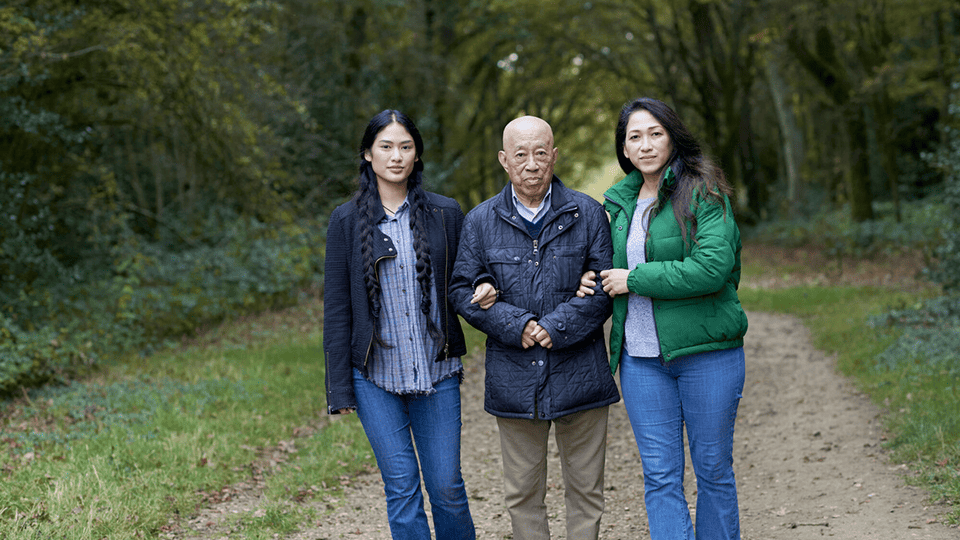
Specialist dementia support for the LGBTQ+ community
Our newly created Consultant Admiral Nurse service for the LGBTQ+ community is an exciting step for Dementia UK.
For families living with dementia, Ramadan may pose unique challenges; we’ve put together some tips to help.
Ramadan, the ninth month of the Islamic lunar calendar, is a special time for Muslims around the world. As a period of spiritual reflection, self-discipline, and increased devotion, it brings families together in observance of the holy month. For families living with dementia, Ramadan may pose unique challenges.
We are sharing some tips to help you observe Ramadan if you are caring for someone living with dementia.
Consider how your loved one’s dementia may impact on how they observe Ramadan. Do they remember it is Ramadan? Will they be able to engage in activities such as fasting and prayers? Do they normally cope with these activities?
Not eating and drinking puts a physical strain on your body and so people with dementia are not expected to fast. Some people living with dementia may not have the capacity to decide to fast or may be taking medication which means they must eat and drink regularly.
People who do not need to fast may still choose to attend the Mosque for additional prayers or may choose to offer additional prayers at home.
During Ramadan, routines and daily schedules may need to shift to accommodate fasting and prayers. These changes can be difficult for individuals living with dementia. They may forget the significance of the month, feel disoriented by the change in mealtimes, or become agitated during prayers.
There may be family members coming together to share meals at the end of the day. This can be unsettling for someone with dementia, especially if they experience sundowning. This may normally be a time when the person is winding down and starting their night-time routine. People living with dementia may also become upset if they realise they have not fasted like everybody else.
Try to maintain some level of routine and consistency for the person with dementia. This may include maintaining regular sleep patterns, engaging in familiar activities and offering reassurance during moments of confusion.
Praying and reading the Quran may be difficult for someone with dementia. However you can encourage them to join in simpler acts of worship, such as listening to Quranic recitations, making Dhikr, or engaging in acts of kindness.
Sharing memories of past Ramadans can be a source of comfort and familiarity for the person with dementia. Engage them in conversations about their past experiences and encourage them to share stories.
Take time to reflect on how you are feeling. You may want to reflect on the spirit of Ramadan – empathy, compassion and selflessness in view of your caring responsibilities.
If you are caring for someone and fasting, you may find you have low energy levels meaning carrying out your daily caring tasks is even harder. Be mindful of how you are feeling and be kind to yourself. Don’t be afraid to ask for help.
As Ramadan is a period of reflection that brings families together, other family members may become aware of the changes in the person with dementia. This can lead to families considering how to best meet the needs of the person living with dementia.
Caring for a loved one with dementia can be physically and emotionally demanding at times, especially during Ramadan. We are here to support you. You can speak to a specialist dementia nurse on our Helpline or in our virtual clinics.

Our newly created Consultant Admiral Nurse service for the LGBTQ+ community is an exciting step for Dementia UK.

Hannah Gardner has recently been appointed as Consultant Admiral Nurse for Children and Young People.

Admiral Nurse Lizzie Harrison provides support strategies for young people caring for someone with dementia.